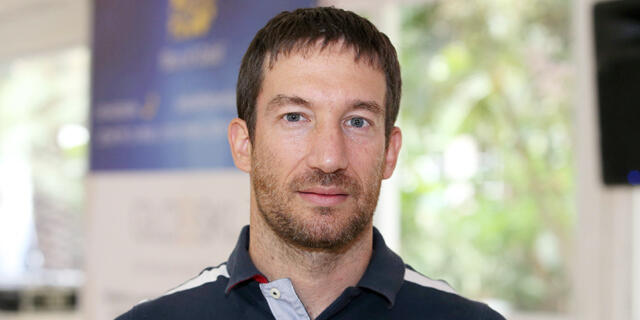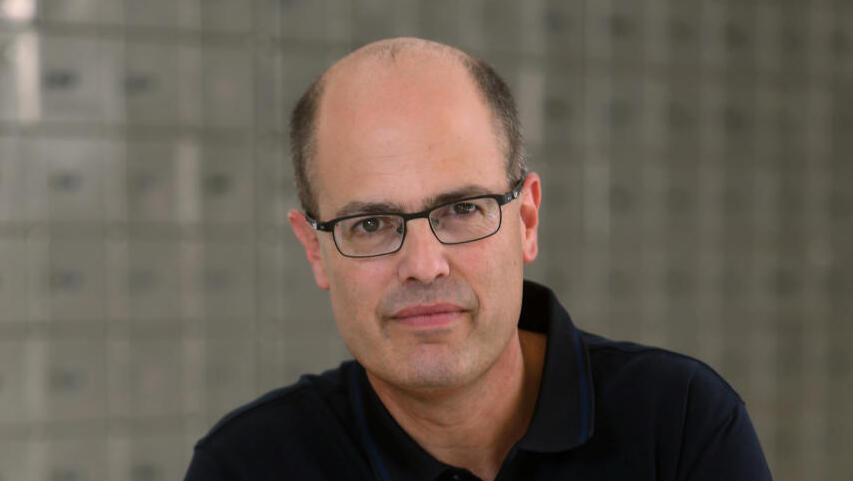
Israel's tech boom faces global headwinds amid geopolitical tensions
Fallout in academia, with boycotts of Israeli researchers and cancellations of collaborations, threatens the R&D pipeline critical to Israel's tech prominence. This chilling effect could severely undermine the sector's competitiveness over time.
High-tech serves as the most critical growth engine of the Israeli economy, and is potentially one of the sectors most exposed to the global economy. Whether it's investors or customers, the primary target audience of high-tech companies lies abroad. Additionally, international technology firms operating in Israel significantly contribute to its economy. This exposure renders startups and high-tech firms particularly vulnerable to various financial sanctions, whether overt and direct or covert and unofficial. Despite industry sources indicating no significant damage to Israeli companies' investment scope or revenues as of now, there's uncertainty regarding future developments.
"Israeli high-tech has attained its position due to a robust connection to global markets," stated Uri Gabai, CEO of the RISE Israel (formerly SNPI), a non-profit independent think tank dedicated to promoting a competitive, innovation-oriented economy. Gabai noted that half of the total investment in research and development in Israel originates from abroad, highlighting potential consequences if Israel becomes undesirable or feared for investment.
In the short term, interviewees do not discern clear harm in the high-tech sector. "I always say that sentiment, anecdotes, and data should be separated. They are all important; it is important to monitor and pay attention to all of them, but not to confuse them," explained Avi Hasson, CEO of Startup Nation Central and former chief scientist at the Ministry of Economy and the first head of the Israel Innovation Authority. "In the data, we do not yet see a decrease in the amount or volume of high-tech investments, or a material impact on the income of high-tech companies, as a result of the war. In the last two years, there has been a significant decrease in high-tech investments, but most of them are associated with global cycles, and we see a very similar decrease in other parts of the world. It is not that there is no decline, but that there is no excess decline that can be attributed to these circumstances. In the report we issued six months after October 7, there was a decrease, but it was comparable to the decrease in the U.S. during that period."
Eden Shochat, Equal Partner at the Aleph venture capital fund, added that investments themselves aren't experiencing decline. He predicted that investors who have already invested in Israel are more likely to reinvest, but attracting new investors may take time. Despite sporadic instances where potential customers refuse to work with Israeli companies, the overall impact remains limited.
However, Gabai expressed reservations, acknowledging a decline in investments in Israeli startups over recent months. "There is no doubt that in the six months after October 7, relative to the six months before, there is a decrease in investments in Israeli startups," he said. "There are several stories here that merge together. One is of a global economic slowdown, from which the world has not yet recovered. There is a decrease in investments in the U.S. and Europe as well. A second trend is the instability in Israel starting in 2023, which has worsened since October 7. And there are those who are morally unwilling to invest in the State of Israel. It can come from anti-Israel and anti-Semitic sentiment.
"There are quite a few Israeli companies that still find investment. They invest less, in smaller amounts, but a good company can raise $100-200 million, and there are quite a few of them. The thing is with all the rest, that they are not superstars, that is where there is harm. I don't know exactly how to analyze why they don't invest in them - is it a global recession, instability in Israel, or a reluctance to invest in Israel - but we see that most of the investments in the last two quarters were in very, very successful companies. Companies that are just very good or good are probably having a hard time, and our concern is that they’ll continue to struggle. Because in the end, the game belongs to 5-6 very prominent companies, which in the past did not characterize Israeli high-tech. There were 60 more companies that received investments. The number of total investments looks good, but in the end, it is a relatively small group of companies that carry on its shoulders the entire investment pie in Israeli high-tech."
Another problem that all the interviewees recognize concerns academia, whose activity is critical to the prosperity of high-tech in Israel. "At the level of anecdotes and sentiment, we are starting to get worrying signs," Hasson said. "The situation in academia is not good. Publications in scientific journals, joint research, participation in conferences, joint projects are affected. The accumulation of anecdotes there is worrying and shows a growing problem. Of course, this is also linked to the high-tech industry. There are many areas where a high-tech company starts in a research laboratory - Life sciences, climate-tech, agritech, artificial intelligence. This is a worrying influence and it is at a higher intensity than in high-tech."
Shochat also recognizes a growing reluctance of researchers abroad to cooperate with researchers in Israel: "There is definitely a problem, and it can significantly harm Israel, especially in the field of AI because there is a lot of work with academia there. The atmosphere there is wider than the demonstrators on the campuses. It's not a massive impact at the moment, but it can definitely hurt the state's capabilities because there is a lot of research being done in academia. In artificial intelligence, the rapid rate of transition from academic research to practical application is almost unprecedented, and because of the rapid movement and the fact that quite a few academic sources are involved in it over time, this can be harmful."
Gabai estimated that beneath the surface, the problem in academia is even deeper. "We hear that there are many cancellations of scientific and technological collaborations, and for every one that is done publicly, there are five that are done under the radar. No one will admit it, but it is clear to everyone that they do not want to work with Israel."
Hasson added that this aspect can also be directly relevant to high-tech: "I am less concerned about those who declare and say they are boycotting Israel or demonstrate with the Palestinian flag and say that they will not do business with Israel because I see them. What worries me is what I don't see, what is happening in closed rooms, where someone says, let's give up this project because there is a risk, uncertainty, or out of an ideological decision. You won't always know. It's not like a customer will send a letter and say they're leaving in protest of genocide. They can simply not renew the subscription."
Shochat believes that the negative situation in academia can be leveraged for good. "We need to examine how to solve this, such as establishing research laboratories and bringing back academics from abroad," he explained. "Because of anti-Semitism on the campuses, there is a readiness for the return of people, including researchers with tenures that it was impossible to even imagine would want to come to Israel. We need to grab this opportunity because they will not arrive without us helping them open laboratories."
Another area in which Shochat identifies a problem is the entrepreneurs themselves: "I see many entrepreneurs leaving Israel. This is a danger that can lead to a drop in the critical mass, something very significant when talking about entrepreneurs and talent and that's what worries me, it's not a flood, not significant amounts, but the real challenge in Israel is inside, not what the outsiders are doing to us."
Despite the difficulties, some optimistic points can be identified. "When Nvidia invests a billion dollars in one week in buying two Israeli companies, this is a very strong statement," stated Hasson. "When Sequoia re-expands its operations in Israel, when General Atlantic makes a new commitment - these are good signs for the world market. That's why it's important to preserve them. One of our best weapons is that you can come and say, 'Here is the most important company in AI saying that Israel is the most important place for it outside of Silicon Valley.'"
Gabai added: "I am relatively optimistic because in the end high-tech is a game in which you invest for the money. As long as there is no trend for investors to stay away from Israel because they are afraid of how they will be perceived, if there is a good Israeli company in the field of cyber or AI, there will be investors who will invest in it because It's a good investment."


















